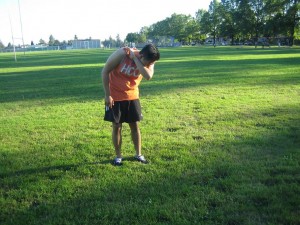Bleeding from the nose is a frightening situation not only for the affected person but also for others who are not accustomed to see one. Nose bleeding is not common in children and older people. There are several factors that causes nose bleeding whether at night or in the morning.
There are factors that cause nose bleeding mostly in the morning and after sleeping at night. Medically, this condition is called as epistaxis.
- Nose bleeding is common during the winter months when the air is dry and people use heaters at home in order to keep the house warm. On the other hand, this dries out the circulating air and the individual is at risk for nasal bleeding usually in the morning and after sleeping. It can also happen at night when going outside during dry cold winter.
- During the summer season, people can also experience nose bleeding and it can occur during daytime.
- Common cold and allergic rhinitis which causes itching of the nose and the sneezing and blowing can cause damage to the nasal lining and result to bleeding. The bleeding with this condition can happen at night and also in the morning.
- Individuals who are suffering from hematological conditions such as leukemia, aplastic anemia and diseases of defective clotting mechanism such as hemophilia can cause bleeding of the nose.
- A traumatic injury can cause damage to the tiny nasal vessels and cause bleeding from the nose.
- People suffering from hypertension can have nose bleeding especially when the diastolic pressure is more than 120 mm Hg and this usually happens during morning. Men at the age of 50 years old can experience a severe attack of epistaxis if the blood pressure is uncontrolled.

Treatment nose bleeding
- Keep the affected person calm.
- Using the thumb and fingers, pinch the nose of the individual for about 5 minutes to help minimize the flow of blood from the vessel that is broken. The hemostatic mechanism of the body helps stop the bleeding point.
- Apply an ice pack over the nose since this can reduce the flow of blood and helps the clotting mechanism of blood. If an ice pack is not available, place a few ice cubes in a cloth and place it over the nose.
- Keep the head elevated until the bleeding stops and it also helps provide a decongesting effect. Instruct the individual to sit in a chair or sleep by placing a few pillows under the head so that the head is above the rest of the body.
- Take a piece of cloth and immerse it in vinegar, then plug the cloth to the bleeding nostril.
If these remedies could not stop the bleeding, it is best to seek medical help as soon as possible.
